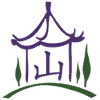It doesn’t take long for a practitioner of holistic medicine to discover that knowledge alone is not enough to make your patients well. A solid education and a few CEU classes will place most well-read practitioners in a position where they are able to offer a number of treatments and lifestyle changes that would make a sizable impact in most patient’s health. If that were all that was needed to make a patient well, our job would be simple. It is not, and so knowledge about the means to health is not enough.
As an example, most all of us would benefit from eating less processed foods and cutting carbs, however most patients would sooner change their religion than their diet. Knowing this, the challenge then becomes convincing patients that the advice you are offering is worth the investment of their time and energy. This becomes a dance. Sometimes patients want to see research, large stacks of paper with journal titles at the top. Others do well to hear case studies of successful recoveries from a patient in a similar situation. At times, the pain runs so deep that empowering a patient that they are worthy of a life without suffering takes precedence over pills, pins, and protocols. Whatever the case, knowing how information will be perceived and when to offer it is the art form of medicine.
Sadly, this subtly is lacking in the average appointment with a Western-trained allopathic physician and this is not due to a lack of compassion on their part. Time constraints and insurance company mandates pigeon-hole a doctor’s skill set to ruling out emergencies and covering their butts to prevent malpractice suits. They have little time to dig under the surface and truly let their intuition speak.
What gets lost is the ability to evaluate the patient with a holistic mindset. Holistic, meaning whole, seeks to understand the myriad aspects of a person’s physical, mental, and emotional health to derive the underlying cause of their disease. In this light, symptoms are a message from the body pointing to the formative disharmony and not merely a nuisance to be suppressed.
Another complication is the perversion of knowledge. Due to bias in research and the politics of health, the muddy waters of medicine can create vastly different opinions about what it takes to be healthy. One practitioner would have you become a vegan while another wants you to adopt a hunter-gatherer diet. Who do you trust? The simple answer is you trust yourself. Unfortunately, such a blanket statement often raises panic in the medically disempowered citizen of the modern world where jargon and white lab coats claim expertise on knowledge of the body. If you are one such person, let this simple truth sink in deep: there is no doctor in the world who knows more about your body than you do. Listening to what your body is telling you and drawing upon the collected wisdom of generations of your ancestors to translate that message is the means by which we have survived as a species.
In this information age we are not suffering from a lack of knowledge. The challenge of our time is reclaiming the wisdom of discernment. The wisdom that you trust your body first and foremost. The wisdom that you heed the example of your ancestors to guide your choices. To seek therapies that work within the body’s design and not against the rhythms of nature. If knowledge were enough the world would not be suffering from diseases of lifestyle. That these conditions are the leading cause of death in the modern industrialized world, we would all do well to recognize that the knowledge of the present must be subservient to the wisdom of the past.
